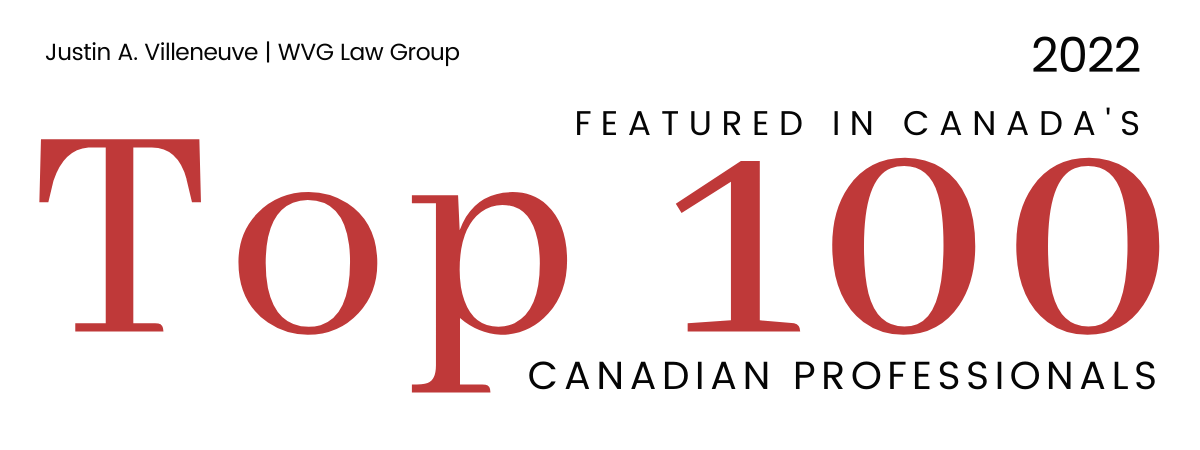Let's talk about your case
You can schedule a call with one of our lawyers anytime. Call today and get the help you need.
Or fill out our online form, and we will respond within 24 hrs.
Case Review: Mulligan v. Ontario Civilian Police Commission, 2020 ONSC 2031
Case Reviewed: Mulligan v. Ontario Civilian Police Commission, 2020 ONSC 2031
The Ontario Superior Court of Justice recently released a decision in the case of Mulligan v. Ontario Civilian Police Commission, 2020 ONSC 2031 - a case which serves as an important reminder to lawyers and litigants alike that the principles of natural justice are key during any judicial proceedings. In this blog post, we will review what happened in Mulligan v. Ontario Civilian Police Commission and examine how this holds implications for future cases brought before the courts. We’ll explore why upholding the fundamental legal principles is essential to protecting oneself from potential injustices while also analyzing how adhering to those concepts help ensure a fair hearing for all parties involved.
In select cases, a practitioner is allowed to reveal otherwise confidential information and openly criticize their employer when there is a strong public interest in knowing. To succeed with the whistleblower defense argument, four conditions must be met:
1. The issue must be serious enough to put life, health or safety in danger;
2. It should not simply be an argument of opinion;
3. Before resorting to external measures, all possible internal attempts must have been made first; and
4. All statements made need to accurate with substantial evidence behind it.
In Mulligan v Ontario Civilian Police Commission, 2020 ONSC 2031 (<http://canlii.ca/t/j6fm9>), an OPP police Sergeant submitted a letter to the Sudbury Star expressing his concerns about how relocating their helicopter from Sudbury to Orillia could put public safety in jeopardy. The Divisional Court enforced the penalty for Sergeant Mulligan's breach of confidence and discreditable conduct, finding that he had not first voiced his worries to his superiors before whistleblowing.
The Court explained:
There may be a situation where the issues raised are so pressing and urgent and the chain of command so obviously dysfunctional or corrupt that going public first is the only reasonable option. However, Sergeant Mulligan never argued that the urgency of the situation made it impractical for him to raise the matter internally first. Furthermore, the evidence he presented did not meet the threshold required to demonstrate the type of dysfunctionality or corruption that would be required for this type of exception to the usual rule.
Is there an Exception for Whistleblowers Who Disclose Highly Confidential Information?
Regulators take extreme measures to protect confidential information in all circumstances. When it comes to their own operations, the duty of confidentiality is paramount and exceptions are made only when a specific public interest exists. Similarly, registrants must always ensure that client data remains secret; however, there may be occasions where an exception applies due to particular cases.
The Reality Winner case in the US is prompting us to reflect on how we can maintain a secure equilibrium between confidentiality and transparency. Reality Winner was sentenced with 63 months of jail time, which happens to be the toughest punishment ever inflicted upon a civilian for disclosing classified info. https://www.cbsnews.com/news/reality-winner-espionage-act-60-minutes-2022-07-24/ Given the fact that President Donald Trump was downplaying Russian interference in the election process, which Ms. Winner revealed information about, many saw her sentence as disproportional. The courageous act of her whistleblowing was rooted in patriotism and justice - two values she holds dearly and wanted to protect through this action.
Although what is safeguarded by regulators does not normally contain state secrets, comparisons can still be made. Many instances of data breaches are due to negligence or selfish motives; however, some license holders have attempted to use the whistleblowing defense for their breach of confidentiality: Mulligan v Ontario Civilian Police Commission, 2020 ONSC 2031 http://canlii.ca/t/j6fm9 provides a real-world example of this scenario.
Furthermore, confidentiality requirements are completely justified due to the requirement of paramount public interest surrounding private information. During this pandemic, many have raised concerns that confidential expectations have been used as a way of silencing those who recognize their duty to bring attention and awareness towards vital health policies and processes which can be life-altering for members of society:
https://www.ctvnews.ca/w5/did-politics-muzzle-a-doctor-who-spoke outabouttheontariogovernment'scovid19response1.5833284
Statutory exceptions to the duty of confidentiality may include reporting a child in need of protection, while case law develops more specific circumstances. For example, in Smith v. Jones (1999 CanLII 674 (SCC), [1999] 1 SCR 455; https://canlii.ca/t/1fqp9) it was held that a solicitor had an obligation to ensure public safety by disclosing information about their criminal client who posed a continued risk.
Nevertheless, there has been limited deliberation on whether to expand the whistleblower exemption for regulators and registrants. This topic could come up in existing cases being handled by authorities that involve public declarations issued by particular registrants during the pandemic.
Crafting a consistent and principled policy on this matter will require significant effort. There is legitimate cause to be cautious in permitting regulatory personnel or registrants the authority to determine which confidential material should be disclosed publicly, since such decisions would involve personal judgment calls.
Nevertheless, the potential misuse of confidentiality requirements can have a detrimental effect on society. To remedy this, policymakers should consider creating in-house whistleblower procedures so that they are able to review any potentially over-restrictive interpretations of such provisions. Moreover, it is suggested for regulators to recommend similar implementations within their registrants’ working spaces as well as when reviewing complaints and deciding disciplinary actions.
In Canada, whistleblowers are protected under the Public Servants Disclosure Protection Act. The website of the Office of the Public Sector Integrity Commissioner of Canada includes detailed information about the protection offered to whistleblowers and how to make a disclosure: https://www.psic-ispc.gc.ca/eng/act-loi_whistleblower-denonciateur/.
The Government of Canada also provides a section on their website about Whistleblower Protection for Federal Public Sector Employees: https://www.canada.ca/en/treasury-board-secretariat/topics/public-sector-integrity/federal-public-sector-employees.html
Let's talk about your case
You can schedule a call with one of our lawyers anytime. Call today and get the help you need.
Or fill out our online form, and we will respond within 24 hrs.
Thank you for contacting us.
We will get back to you as soon as possible. You can also book using this link: Personal Injury Booking Page
Please try again later
Related Blog Posts
Practice Areas
QUICK LINKS
CONTACT US
Tel: (613) 505- 5025
Fax: (613) 234-5852
info@wvgblaw.com
200-2571 Carling Avenue
Ottawa, Ontario
K2B 7H7
SERVICES
RECENT BLOG POSTS














